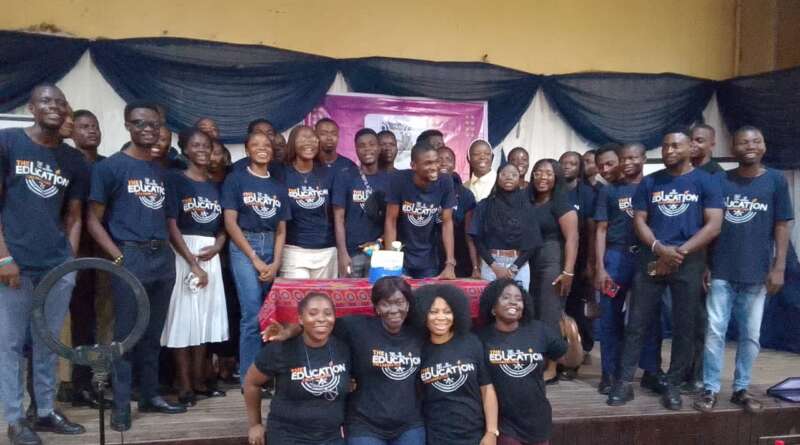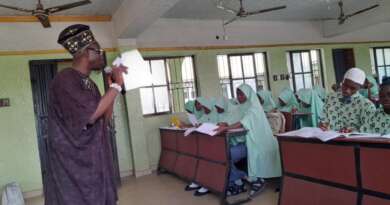Stakeholders Call for Integration of Service Learning Model in University Curriculum
 Stakeholders in Nigeria’s education sector have reiterated the need to integrate service learning models in tertiary education curriculum to enhance employability skills of the Nigerian graduates.
Stakeholders in Nigeria’s education sector have reiterated the need to integrate service learning models in tertiary education curriculum to enhance employability skills of the Nigerian graduates.
While highlighting numerous benefits of integrating the model in schools curriculum during the University of Ibadan Service Learning Celebration Day on Saturday, several speakers at the event noted that the model is mutually beneficial for students, faculty, college and community.
Service Learning and Curriculum Service Learning Model is an educational approach that integrates community service with academic instruction, promoting skills like leadership, communication, teamwork, and problem-solving, valuable for graduate studies and future work-readiness.
The celebration which was themed: “Embedding Service Learning in Curriculum for Functioning University Education in Nigeria” serves as a platform to highlight the achievements of undergraduate students and community partners who have participated in service learning projects.
 In her remarks, the Principal Investigator, University of Ibadan Service Learning Group, Dr Tolulope Gbadamosi, said that service learning gives students practical, hands-on, experience that connects students directly to their course work and allows them to contribute positively to the community.
In her remarks, the Principal Investigator, University of Ibadan Service Learning Group, Dr Tolulope Gbadamosi, said that service learning gives students practical, hands-on, experience that connects students directly to their course work and allows them to contribute positively to the community.
Gbadamosi added that service learning also strengthens the University’s connections in the community and encourages students to be active citizens.
“Selected students from different departments have successfully undergone mentorship from our community partners as part of our ongoing research project aimed at enhancing undergraduate employability through the Service Learning Model.
“This project not only contributes to the improvement of our community, but also plays a vital role in developing essential skills and competencies that enhance students’ employment prospects, “she said.
The keynote speaker, Dr Becca Berkey, in her presentation said that defining a university’s role in addressing the complex issues that would shape the future of the nation and its people remained one of the challenges facing universities in aligning to truly meet society’s needs.
Berkey, a Director of Community-Engaged Teaching and Research, Northeastern University, USA, said that society’s needs could be achieved through adequate assessment of the quality and impact of service learning programmes.
“Universities can meet society’s needs through the development of an intellectual foundation for outreach that emphasizes a more seamless interaction between the extension and application of knowledge and the other dimensions of the university’s academic mission, “she said.
 Similarly, Prof Ayodele Jegede, Director, Research and Management Office, University of Ibadan, said integrating service learning models in university curriculum would lead to improvement in the educational system and learning process.
Similarly, Prof Ayodele Jegede, Director, Research and Management Office, University of Ibadan, said integrating service learning models in university curriculum would lead to improvement in the educational system and learning process.
He added that integrating service learning models in university curriculum would also develop civic responsibility of students through active community involvement.
One of the service learning mentees, Miss Gbenuola Oluwole, a UI law student who had her mentorship attachment at Oyo State Mediation Centre said that the project had strengthened her critical thinking ability, communication and practical skills.
On his part, a 500 level Chemical Pathology student, Daniel Anyirionye, said that he was able to gain skills on personal branding, interpersonal development, time management and ability to identify and proffer solutions to problems.
The event featured awards and certificate presentations, networking sessions, comprehensive overview of the research project’s findings and the experiences of participating students.



